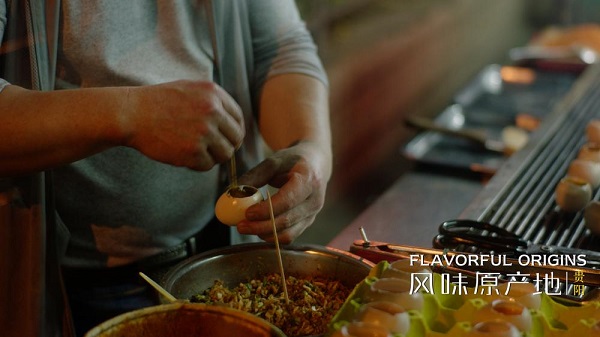Local flavors

The documentary series Flavorful Origins reveals the bonds between food and the soil that nourishes it. [Photo provided to China Daily]
The perfect mixture of flour and eggs makes the noodles pliable and chewy. One might try to cover their eyes at the pudding-like swine blood that the veteran chef slices into pieces and throws into boiling water. All this is covered in minute detail. The process does not necessarily please some of the audience, but for many, it will make them salivate.
Even for common materials like tofu, the locals have a novel but time-tested way to deal with it.
The tofu, made with sour soup fermented for three days, has become an ingredient for dozens of dishes like fried bean curd balls, or fried tofu slices with a golden, inflated surface with insides melted into soybean milk.
The latter can also be covered with fish mint (yuxingcao), a garnish favored by people living in Southwest China's highland and mountainous areas.
"Although the locals do not know the process food undertakes, like acid-base neutralization, or how to manage temperature and broth, generations of people there have gradually developed techniques based on their understandings of the dish," Li says, adding that it's one of the most charming aspects about folk cuisine.
Presented by China Daily.
黔ICP备05001922号-3
